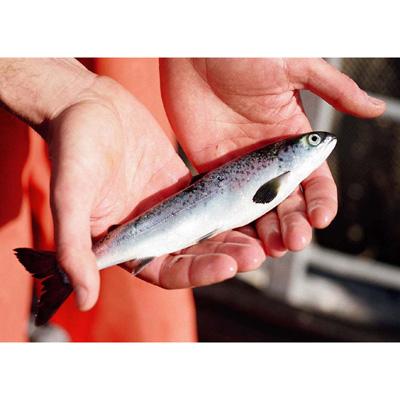Effects of Acidification and Base Cation Depletion on the Conservation and Restoration of Migratory Atlantic Salmon in New England Watersheds

Soil acidification, depletion of base cations (positively charged ions such as magnesium or calcium that increase pH of water or reduce acidity), and subsequent release of aluminum from soils into water in the Northeast has been the focus of considerable research. However, impacts of these ecosystem changes on conservation and restoration of biodiversity has not been fully explored. Atlantic salmon, extinct in most of its U.S. native range, is the target of major restoration efforts but is sensitive to acidic conditions in rearing streams during vulnerable life stages.
To better understand consequences of long-term ecosystem change on conservation and restoration of fishes in the Northern Forest region, NSRC researchers studied effects of a range of acidic conditions on juvenile Atlantic salmon. They used laboratory experiments with controlled levels of acidity and aluminum to develop a biomarker for exposure. Aluminum concentrations in fish gills, easily sampled using a non-lethal gill biopsy, were reliable bio-indicators. At the Hubbard Brook Experimental Forest in New Hampshire and in the Green Mountains of Vermont, researchers exposed caged, juvenile salmon to the range of acidities that exist in wild rearing streams and tested these conditions on fish survival and stress.
Elevated gill aluminum concentrations resulted in mortality of salmon smolts (life stages that migrate from freshwater to sea) in the most acidified sites. Even in sites with relatively low acid-aluminum, researchers observed physiological impairment that would likely lead to mortality at sea, thereby linking freshwater ecosystem degradation with marine performance and emphasizing that ecosystem stress threatens restoration of migratory fishes in the Northern Forest region.
